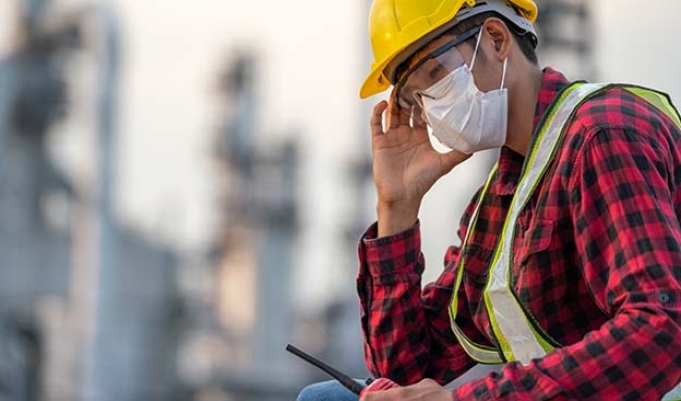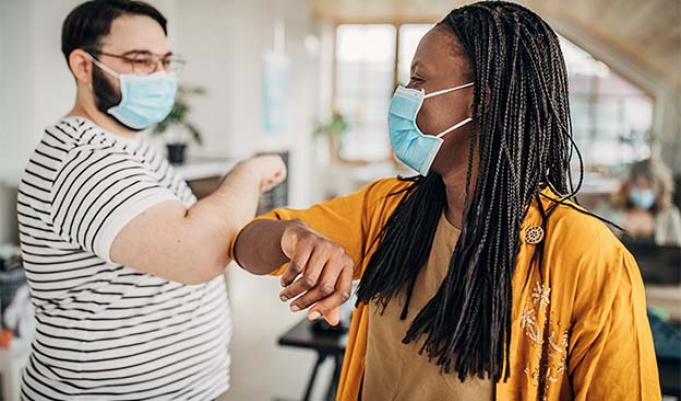Strategies to help with Omicron anxiety
The recent rise in cases of COVID-19 is having an impact on families throughout the country. As a result, many of us are starting 2022 with added levels of stress or anxiety.
Psychiatrist Yusra Benhalim says that throughout 2021 many people struggled with their mental and emotional health, and the recent rise in positive COVID cases could lead to higher levels of anxiety: “The Omicron variant came at a time when many people were just getting back to a sense of routine. Now people are more worried about their family and children getting sick, or getting sick themselves. It’s a tough way to start the new year. There is a sense of mental and emotional fatigue for a lot of us right now.”
She notes that it’s important to be as practical as possible about what’s happening now and focus on controlling the things that we can. Taking the right small steps can make a big difference in our well-being.

Here are some strategies:
Talk about how you’re feeling. Family, friends and in a lot of cases co-workers can be a good sounding board. Many people are having similar experiences right now. If you think you could benefit from working with a professional, check out Explore Therapy.
As part of your Employee Assistance Program, you can get confidential, in-the-moment support from a Masters-level specialist at no cost. They can also connect you with other resources.
Create healthy routines. Doing a few things every day can help you feel better. Try moving your body, eating nutritious foods, getting enough sleep, sunshine and time with nature. Check out our Well-being center for ideas.
Notice what triggers stress or anxiety. For some people, watching the news or tracking social media closely can make them feel anxious or depressed. If that’s true for you, be sure to set healthy boundaries where you can still stay informed without getting overwhelmed.
Be mindful of alcohol use. Dr. Benhalim notes that rates of substance use have risen considerably through the pandemic. “A lot of people drink alcohol or use other substances as a way to cope with stress and anxiety. But alcohol and drugs can actually worsen our physical and emotional health. I encourage anyone who is struggling to reach out for support and know you are not alone.” Check out our substance use support center for resources.
Try a self-care app. Many people feel better when they have a tool they can use anytime, anywhere. Sanvello is a powerful app that can help dial down the symptoms of stress, anxiety and depression —all at your fingertips. Download now.
Check in with kids and teens. The U.S. Surgeon General has issued an advisory to tackle mental health in young people. Many youth are having a really hard time coping with COVID. Trying to get young people to share things can be a challenge, but it’s worth the effort. Starting the conversation is the first step. Try these downloadable topic cards for ideas on how to start the conversation.
There may be a silver lining. While the number of Omicron variant cases has spiked, “all indications point to a lesser severity of Omicron versus Delta,” says Dr. Anthony Fauci, the director of the National Institutes for Allergy and Infectious Diseases. “As infections become less severe it’s much more relevant to focus on the hospitalizations as opposed to the total number of cases.” So when you hear of a friend or relative testing positive, or if you test positive yourself, remember that for those who are fully vaccinated, the risks seem to be lower.
